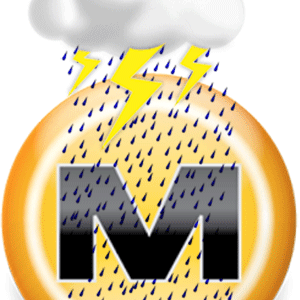 NEWS
NEWS
 NEWS
NEWS
 NEWS
NEWS
![]() With the fall of Megaupload.com to the United States government in an action that has taken them entirely offline—in a move yet unprecedented by the US against a foreign site—it brings to mind what sort of effect this might have on other file sharing sites such as Box.net, Dropbox, YouSendIt, and others.
With the fall of Megaupload.com to the United States government in an action that has taken them entirely offline—in a move yet unprecedented by the US against a foreign site—it brings to mind what sort of effect this might have on other file sharing sites such as Box.net, Dropbox, YouSendIt, and others.
How will cloud file sharing sites that fall beneath the umbra of the DMCA and other copyright legislation who also permit users to share large files with one another react the current legislative and executive climate? Only recently, laws that would have given tremendous powers to copyright holders and the government to shut off foreign sites—and especially those that enable file sharing in the cloud—have been permanently shelved; but the philosophy that underpins them still flows in undercurrents with copyright law.
Then only a day after a major protect against SOPA and PROTECT-IP (the two shelved bills) did the US government move against Megaupload, citing piracy and copyright infringement by the file sharing site.
Already, FileSonic, another massive file sharing site, has withdrawn their services in the file sharing ecology. In reaction to the Megaupload takedown they’ve caused an immediate cessation of the sharing and personal revenue generation portion of their services. Users who uploaded files to their service still have access to the files they personally uploaded (i.e. they can download them) but users can no longer access files uploaded by other users.
Brian Curry, Chief Product Officer, YouSendIt, says on the subject, “It’s reasonably easy for a business like ours to comply with the Digital Millennium Copyright Act (DMCA).” He adds, “But the cloud industry as a whole will be impacted if legislators start writing laws that are overly broad in an effort to get the bad actors. Such broad legislation will make it difficult for cloud companies to do business.”
Another fear by file sharing sites is that Megaupload has long claimed that they’ve complied fully with the DMCA and there’s currently little evidence that they haven’t. In fact, we’ve heard repeatedly that they have followed the guidelines of the DMCA right up to accepting takedown notices as per the “safe harbor” portions of the law. Although, an Ars Technica examination of the subject shows that Megaupload may have left their pants flying in the wind with some fly-by-night practices in relation to the DMCA before 2009.
Not all businesses feel that the fall of Megaupload will affect them.
“At Box, we’re primarily focused on powering collaboration and information sharing within businesses, and we infrequently run into copyright infringement issues in those instances,” Aaron Levie, CEO and co-founder of Box.net told SiliconANGLE. “In fact, a large number of organizations, in and beyond Hollywood, use the Box Business and Enterprise editions in the creative process of making and bringing movies, music, and other media to market.”
Right now, the ground upon which sharing in the cloud is founded seems a little shaky. Although many supporters of Megaupload paint them in a golden light, detractors and prosecutors want to assure the rest of the world that they were up to no good. The problem is that to others like FileSonic the sudden insecurity felt over upcoming legislation has put them in fear of legal murk.
Big, brand-name cloud file sharing outfits will probably feel safe in light of Megaupload, especially if all their files are in order; but others who have similar models may be looking at their business and making hard decisions right now.
[Article contributors: Kit Dotson and Kristen Nicole.]
Support our mission to keep content open and free by engaging with theCUBE community. Join theCUBE’s Alumni Trust Network, where technology leaders connect, share intelligence and create opportunities.
Founded by tech visionaries John Furrier and Dave Vellante, SiliconANGLE Media has built a dynamic ecosystem of industry-leading digital media brands that reach 15+ million elite tech professionals. Our new proprietary theCUBE AI Video Cloud is breaking ground in audience interaction, leveraging theCUBEai.com neural network to help technology companies make data-driven decisions and stay at the forefront of industry conversations.